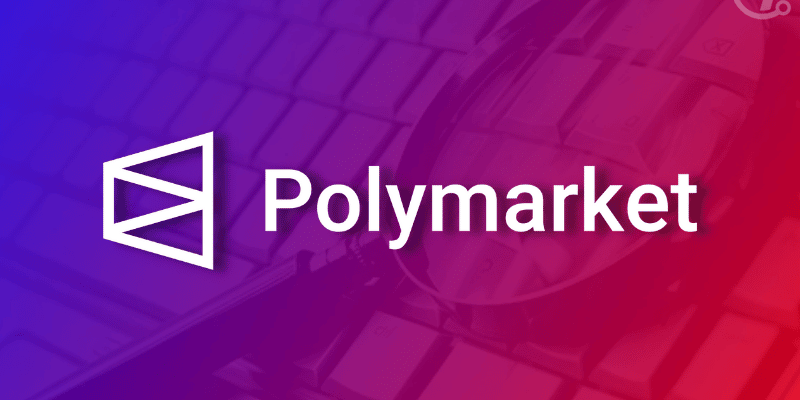Polymarket Challenges UMA’s Oracle Decision on Barron Trump DJT Token Involvement

QuickTake:
- Dispute in Oracle Service: Polymarket questions UMA’s resolution on Barron Trump’s involvement with DJT token.
- Market Controversy: UMA ruled “no” on Barron Trump’s involvement, despite Polymarket’s differing stance.
- Ongoing Debate: Neither Barron Trump nor the Trump campaign has commented on the DJT token.
- Resolution Conflict: Polymarket suggests a fix will be announced soon.
In an unusual turn of events, Polymarket, a prominent prediction market platform, has publicly challenged the decision of its decentralized oracle service, UMA, regarding the resolution of a market betting on Barron Trump’s involvement with the DJT token. This controversy underscores the complexities and potential conflicts inherent in decentralized finance (DeFi) systems and their reliance on oracle services to resolve disputes.
The issue began when Polymarket hosted a prediction market asking whether it was more likely than not that Barron Trump, son of former U.S. President Donald Trump, was involved in the creation of the DJT meme coin. UMA, the oracle service responsible for resolving such disputes, concluded multiple times that Barron Trump was not involved. This decision did not sit well with holders of “yes” shares, who believed there was enough evidence to support their position.
Polymarket’s contract for the DJT market explicitly stated, “This market will resolve to ‘Yes’ if a preponderance of evidence suggests that Barron Trump was involved in the creation of the Solana token $DJT. Otherwise, this market will resolve to ‘No.'” The determination was to be made by UMA, taking into account all available evidence by 12 PM ET, June 23.
Despite UMA’s multiple “no” resolutions, Polymarket has now signaled it may overrule this decision. On Wednesday, Polymarket publicly stated its belief that UMA got it wrong and announced it would soon provide a resolution fix. This announcement adds another layer to the already contentious two-week saga surrounding the DJT token, a Trump-themed memecoin that has seen neither acknowledgement nor denial from Barron Trump or the Trump campaign regarding any involvement.
UMA, known for its decentralized “optimistic” oracle system, allows its tokenholders to vote on the outcome of disputes in prediction markets. In the case of the DJT market, an overwhelming majority of UMA tokenholders voted “no” on Barron Trump’s involvement. This decision reflects the collective judgment of the community based on the evidence presented, highlighting the decentralized nature of the oracle’s decision-making process.
However, Polymarket’s move to potentially override UMA’s resolution is significant. It raises questions about the autonomy and reliability of decentralized oracles in prediction markets and the broader DeFi ecosystem. If Polymarket proceeds with its plan to fix the resolution, it would set a precedent for how disputes and conflicting decisions are managed in decentralized platforms.
The controversy surrounding this market also underscores the challenges faced by decentralized platforms in handling high-profile and politically sensitive issues. The involvement of a public figure like Barron Trump adds a layer of complexity, as the decision could have broader implications beyond the immediate financial stakes of the market participants.
For the crypto community, this situation serves as a reminder of the importance of clear guidelines and robust mechanisms for dispute resolution. While decentralized oracles like UMA are designed to provide unbiased and community-driven decisions, the potential for disagreement and override by platform operators introduces a level of uncertainty.
The resolution of this dispute will be closely watched by the crypto and DeFi communities. It will provide insights into how decentralized platforms can balance community-driven decision-making with the need for authoritative resolution mechanisms. The outcome could also influence how future prediction markets and decentralized oracles handle similar disputes.
In the meantime, Polymarket’s users and the broader crypto community are left waiting for the platform’s final decision on the DJT token market. The resolution will not only impact the immediate financial outcomes for market participants but also set a tone for how Polymarket and other platforms handle conflicts with their oracle services in the future.
As the debate continues, it is clear that the integration of decentralized decision-making processes in financial markets is still an evolving field. The challenges and conflicts that arise in such systems highlight the need for ongoing innovation and improvement in how these platforms operate and resolve disputes. The DJT token controversy is just one example of the growing pains the industry faces as it seeks to build more transparent, decentralized, and fair financial systems.
In conclusion, Polymarket’s challenge to UMA’s decision on Barron Trump’s involvement with the DJT token is a pivotal moment for decentralized prediction markets. The resolution of this conflict will have significant implications for the credibility and functionality of decentralized oracles and the platforms that rely on them. As the crypto community watches closely, the outcomes of this dispute will likely influence the future direction of decentralized finance and its approach to resolving contentious issues.



